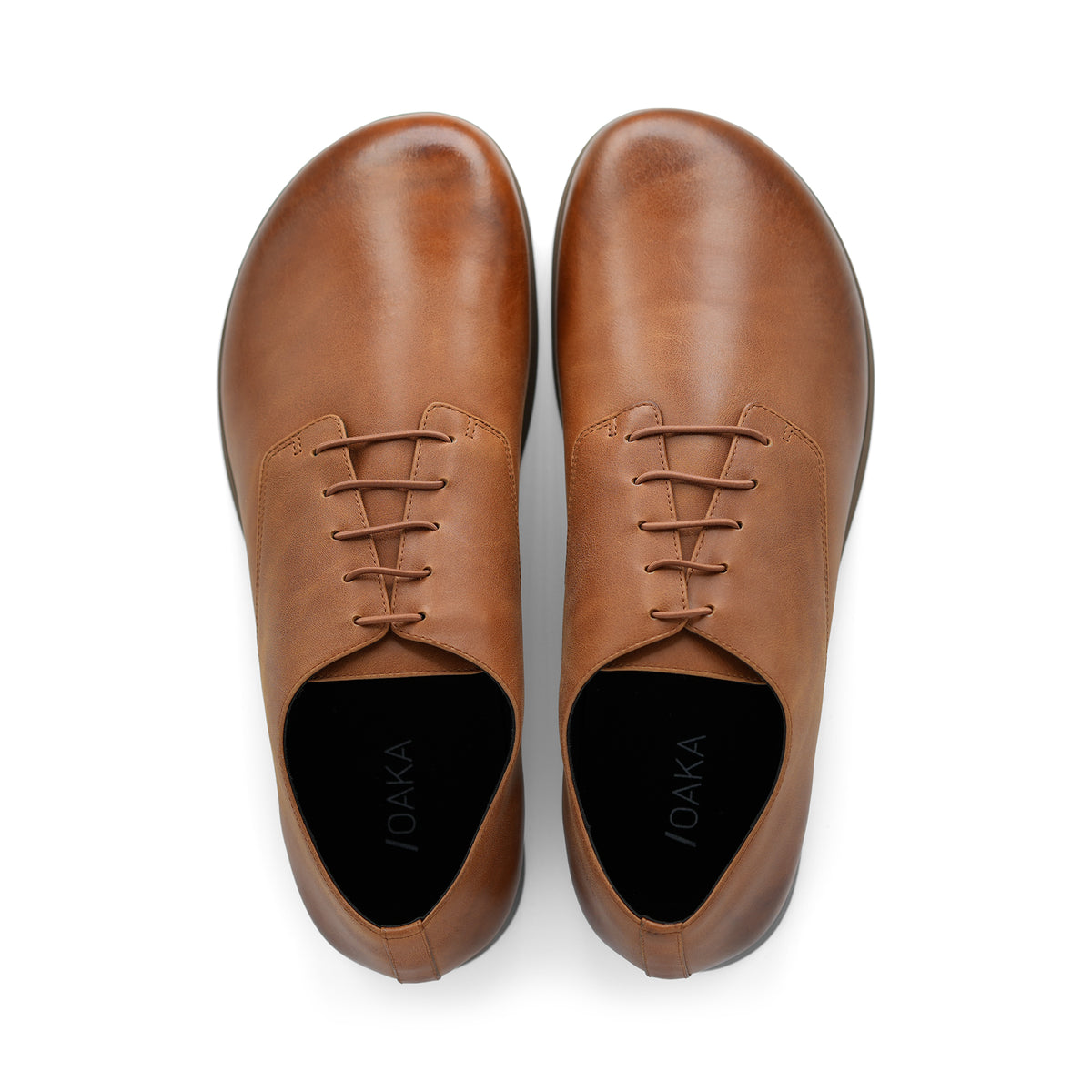Curious about vegan shoes? These shoes are made without any animal products. In this article, we’ll explore what makes a shoe vegan, the materials used, and the benefits. Plus, we’ll share top brands and styling tips.
Key Takeaways
-
Vegan shoes are crafted from synthetic or plant-based materials without involving any animal-derived components, ensuring a cruelty-free and ethical choice for consumers.
-
Innovative materials like apple leather, corn leather, and recycled PET are used in vegan shoes, providing durability, flexibility, and eco-friendly alternatives to traditional leather.
-
Choosing vegan shoes helps reduce the environmental impact associated with traditional leather production, such as deforestation and pollution, while supporting sustainable and transparent manufacturing practices.
What Are Vegan Shoes?

Vegan shoes, crafted entirely from synthetic or plant-based materials like:
-
leather
-
wool
-
suede
-
silk
do not involve any animal-derived materials in their production process, thus ensuring no harm to animals. This makes vegan shoes a cruelty-free and ethical choice for consumers who want to avoid contributing to animal exploitation.
To be considered vegan, a shoe must not only exclude animal materials but also avoid animal testing during its production. This commitment to cruelty-free practices extends beyond the materials used, encompassing the entire manufacturing process. Choosing vegan shoes allows consumers to support a more humane approach to footwear, aligning their fashion choices with their ethical values.
Materials Used in Vegan Footwear
An array of innovative materials contribute to the incredible diversity within the world of vegan footwear, enabling the creation of stylish and sustainable shoes. From bio-based resources like corn, bamboo, and apple to synthetic options such as recycled plastics and microfiber, the materials used in vegan shoes are both varied and versatile. These materials not only offer ethical benefits but also provide durability, flexibility, and comfort, making vegan shoes a practical choice for any wardrobe.
We will explore some of the standout materials used in vegan footwear, namely apple leather, corn leather, and PET (recycled plastics).
Apple Leather
Apple leather, a sustainable, plant-based material, is derived from the waste produced by the apple juice industry. Specifically, it utilizes the solids left over after pressing apples, such as the skin and core waste. This innovative material not only repurposes waste that would otherwise be discarded but also provides a leather-like texture and appearance, making it an excellent alternative to traditional leather.
The process of creating apple leather involves:
-
Drying and pulverizing the apple remnants
-
Mixing them with pigments and a binder to form a leathery sheet
-
Combining the final product with polyurethane to enhance its durability
The result is a PETA-approved vegan leather that is both eco-friendly and stylish.
Corn Leather
Another innovative material used in vegan shoes is corn leather, which is created from leftover corn waste. This material is 63% biodegradable, making it a highly eco-friendly option for sustainable footwear. By utilizing non-edible parts of the corn plant, corn leather represents a sustainable use of agricultural byproducts that would otherwise go to waste.
The production process of corn fiber textile involves:
-
Turning corn fibers into a usable textile
-
Combining the fibers with a polyurethane-based binder
-
Resulting in a flexible and durable material
-
Using the material in various types of footwear
This process provides a green alternative to traditional leather.
PET (Recycled Plastics)
Commonly used in vegan shoes, PET or recycled plastics, is a strong and lightweight material. The process of creating recycled PET involves shredding, cleaning, and melting plastic waste, such as plastic bottles, to form new, versatile products. This not only helps reduce plastic waste but also offers a durable and flexible material for footwear.
Shoes made from recycled PET often utilize advanced knitting processes to enhance comfort and fit. By repurposing plastic waste into stylish and functional shoes, this material contributes to a more sustainable and eco-friendly fashion industry.
Why Choose Vegan Shoes?
The ethical implications of vegan shoes are just one of the numerous reasons to choose them. By opting for vegan footwear, consumers can:
-
Help eliminate the need for animal exploitation
-
Align their choices with practices that oppose animal cruelty
-
Save billions of animals each year, making a significant impact on animal welfare.
Vegan shoes not only offer ethical benefits but also often have a lower carbon footprint compared to traditional leather shoes. The production of vegan footwear typically generates less pollution and requires fewer resources, helping to reduce the demand for environmentally damaging livestock farming. This makes vegan shoes a more sustainable choice for those looking to minimize their environmental impact.
For individuals with allergies or sensitivities to animal products, vegan shoes can also offer a healthier alternative. By avoiding animal-derived materials, vegan footwear provides an option that is less likely to cause allergic reactions, contributing to a stylish and sustainable lifestyle.
Environmental Impact of Vegan Footwear
Compared to traditional leather shoes, the environmental impact of vegan footwear is generally more favorable. Vegan shoes often utilize sustainable materials like recycled plastics and plant-based fibers, which help reduce environmental harm. By choosing materials that repurpose waste and require fewer resources, vegan footwear brands can significantly lower their environmental footprint.
Traditional leather production contributes to:
-
Deforestation
-
Greenhouse gas emissions
-
Water pollution
-
Use of toxic chemicals that pose health risks to workers and nearby communities
Vegan shoes avoid these harmful practices, promoting a cleaner and safer production process.
Moreover, the use of recycled PET in vegan footwear helps reduce plastic waste and its environmental impact. By supporting industries that prioritize sustainability, consumers can promote eco-friendly manufacturing processes and contribute to the reduction of pollution and resource consumption.
Transparency in Vegan Footwear Brands
A crucial aspect of vegan footwear brands is transparency, which reassures customers that no animal-derived materials are used in the production process. Companies that are transparent about their materials and manufacturing processes build trust with consumers and promote a more ethical and sustainable approach to fashion.
By clearly communicating the materials used and the steps taken to ensure ethical production, vegan footwear brands can foster a stronger connection with their customers. This transparency not only supports the principles of veganism but also encourages a broader shift towards sustainable fashion practices.
How to Identify Vegan Shoes
If you know what to look for, identifying vegan shoes can be straightforward. Labels or certifications such as the PETA-approved Vegan or Vegan Society logo are reliable indicators that a shoe is vegan. Checking the labels and materials list is also essential to ensure no animal-derived materials are used.
Additionally, researching the brand’s ethical and sustainability practices can provide further assurance of the shoe’s vegan status. Brands that disclose detailed information about their materials and production processes are usually more trustworthy. If in doubt, directly asking the retailer or brand for more information can also help verify the authenticity of vegan shoes.
Popular Vegan Shoe Brands
In the vegan footwear industry, several brands have established themselves by offering a variety of stylish and sustainable options. Stella McCartney, for example, is known for her high-end vegan shoes made from materials like Alter Mat and VEGEA, which are bio-based alternatives to leather.
Etiko, an Australian brand, specializes in Fairtrade sneakers and flip-flops made from natural rubber and organic cotton. Okabashi produces vegan flip-flops and flats from recyclable materials, incorporating 40% US-grown soy by weight. Bhava creates durable, handmade vegan shoes in Portugal using Italian vegan leather.
Thesus, a Canadian brand, makes stylish outdoor footwear from recycled PET and cork, ensuring their workers are paid a living wage. Will’s Vegan Store offers classic styles like brogues and loafers made from bio-based vegan leather sourced from organic cereal crops. Each of these brands brings its unique approach to vegan footwear, making it easier for consumers to find the perfect pair for any occasion.
Styling Tips with Vegan Shoes
Styling vegan shoes offers both fun and versatility. For a casual look, pair vegan sneakers with jeans and a t-shirt; they blend seamlessly for a relaxed, effortless vibe. For those looking to make a statement, pairing vegan shoes with neutral-toned outfits can highlight the footwear as a standout piece.
Adding green laces to vegan shoes can provide a pop of color to a minimalist outfit, adding a unique touch to your style. For a more formal appearance, vegan leather shoes can be paired with tailored suits or dresses, proving that ethical fashion can be both elegant and sophisticated.
Caring for Your Vegan Shoes
With relatively simple care, you can help extend the lifespan of your vegan shoes. For vegan leather shoes, use soapy water and a damp cloth to clean them, followed by applying a color-matching or colorless polishing cream. Shoes made from recycled plastic can be cleaned by brushing off dirt and using a damp cloth with light dish soap.
Cork shoes should be cleaned with a dry cloth followed by a damp cloth using small circular motions. For cotton shoes, use lukewarm water, a soft-bristle brush, and dish soap. By following these care instructions, you can keep your vegan shoes looking fresh and new for longer.
Summary
Vegan shoes offer a stylish, sustainable, and ethical alternative to traditional footwear. By choosing vegan shoes, you can contribute to reducing animal exploitation and minimizing environmental impact. The variety of materials used in vegan footwear, such as apple leather, corn leather, and recycled PET, ensures that there are options for every style and occasion.
With the growing popularity of vegan footwear, brands are becoming more transparent about their materials and production processes, making it easier for consumers to make informed choices. Whether you’re looking for casual sneakers or elegant dress shoes, vegan footwear provides a cruelty-free and eco-friendly option that doesn’t compromise on style or comfort.
Frequently Asked Questions
What are vegan shoes made of?
Vegan shoes are made from synthetic or plant-based materials, including apple leather, corn leather, and recycled plastics. Avoiding animal products is crucial in their production.
How can I identify vegan shoes?
To identify vegan shoes, look for labels like PETA-approved Vegan or Vegan Society logo, check the materials list, and research the brand's ethical practices. This will help you ensure that the shoes are entirely free from animal products.
Why should I choose vegan shoes?
You should choose vegan shoes because they are cruelty-free, have a lower environmental impact, and can be a healthier option for those with allergies or sensitivities to animal products.
What are some popular vegan shoe brands?
Some popular vegan shoe brands include Stella McCartney, Etiko, Okabashi, Bhava, Thesus, and Will's Vegan Store. These brands offer a wide range of stylish and cruelty-free footwear options for conscious consumers.
How do I care for my vegan shoes?
To care for your vegan shoes, clean them with soapy water and a damp cloth, apply polishing cream, and follow specific care instructions for different materials. Regular maintenance will ensure longevity and a fresh look for your footwear.
___
Michael Plater is an authority on barefoot shoes, having spent years reviewing and testing products as well as modifying and ripping out soles to find the healthiest options.
_____________
P.S. Try OAKA, our barefoot Derby style dress shoe that strengthens your feet and provides all day comfort.

